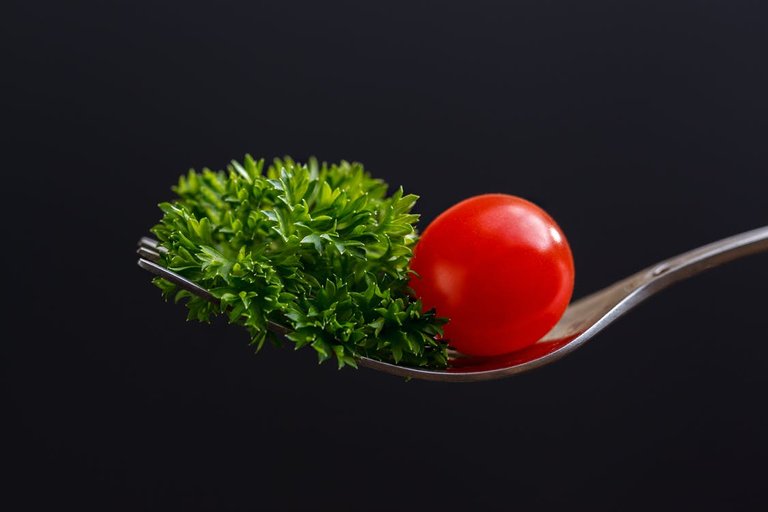What should we be eating to be healthy and vibrant? This is the question I have been asking myself for a while now, so it's time to share my thoughts with you all. It's not an easy one to answer as there are so many factors involved in health and well-being, but I'm going to give it a go!
The first thing that comes to mind when thinking about food is nutrition, or rather what we put into our bodies. We need nutrients from different sources to stay healthy. Some of these come from the foods we eat (macronutrients), some from the air we breathe (micronutrients) and others from water (minerals). The three main macronutrients are: carbohydrates, protein and fat.
There are also micronutrients such as vitamins, minerals, phytochemicals, amino acids and fatty acids. These play a huge role in how our body functions on a day to day basis. For example, if you don't get enough vitamin C your immune system will weaken and you could become susceptible to colds and flu. If you don't get enough iron, your red blood cells won't work properly and you may feel tired and lethargic.
It's important to remember that just because something is natural doesn't mean it's good for us. Natural does not necessarily equal healthy. The same goes for processed foods. They can be very nutritious, but they are often high in sugar and salt which can cause weight gain and increase risk of chronic diseases like heart disease and diabetes. This is why it's so important to know what you're putting into your body.
I think most people would agree that fresh, whole foods are best, but unfortunately this isn't always possible. Even organic produce has been sprayed with pesticides, so it is no longer 100% free of chemicals. And even though it may look perfect on the outside, it still needs to be washed thoroughly before eating. However, there are certain fruits and vegetables that are particularly nutritious and easy to find at any supermarket. Here is a list of the top five:
- Spinach – rich in vitamins A, B2, C, K, E and folic acid. Good source of calcium, magnesium, potassium, iron, zinc, copper and manganese. Also contains flavonoids and lutein.
- Tomatoes – rich in lycopene, which is an antioxidant that helps protect against prostate cancer and other types of cancers. Also a good source of vitamin C, folate, fibre, potassium, thiamine, riboflavin, niacin, vitamin B6, pantothenic acid and vitamin K.
- Sweet potato – full of beta carotene and vitamin C. Great source of fibre, iron, vitamin B6, vitamin B9, potassium, calcium, magnesium, phosphorus, copper, zinc and manganese.
- Blueberries – high in antioxidants. Good source of vitamin C, fibre, vitamin K, manganese, potassium, magnesium, copper, folate, vitamin B6 and vitamin E.
- Nuts – contain essential fatty acids and omega 3 and 6. Rich in vitamins E and B complex, calcium, iron, magnesium, potassium, selenium, zinc and phosphorous.
These are just some examples, but there are plenty more nutrient dense foods out there. The key is to eat a wide variety of them to make sure you get all the nutrients you need. You can also take supplements to fill in the gaps, but I'd recommend getting your nutrients from food first.
So, what should we be eating to be healthy and vibrant? My answer would be whole, plant-based foods. These include fruit, vegetables, nuts, seeds, beans, lentils, legumes, grains, etc. All of these foods are naturally low in calories and high in nutrients, which makes them great for losing weight. In addition, they provide our bodies with energy, help to lower cholesterol, reduce inflammation, prevent heart disease, protect against cancer and improve brain function. Eating lots of colourful, whole foods means you'll get a wide range of micronutrients, which will boost your overall health.
There are a few things to consider when choosing your food. First, it's important to buy organic produce whenever possible. Organic farming uses fewer chemicals and therefore lessens the amount of toxins entering our bodies. Second, try to avoid processed foods. Instead, choose unprocessed foods that haven't been altered in any way. Finally, don't forget to drink plenty of water throughout the day.
To sum up, it's important to eat a wide variety of whole, plant-based foods to get all the nutrients you need. If you do this regularly, you'll be able to maintain a healthy weight and live a long life.

Eating a variety of nutrient rich food is definitely the way to go. Your top five is certainly an excellent start to a balanced, healthy diet. Thank you for posting in the EcoTrain community ❤️💕🤗
Great post about the macronutrients and micronutrients that need to be eaten for healthy living. We need to be cautious of what we take into our body, especially processed foods that have already been altered with different chemicals which can affect our body system badly. Let´s eat much of plant-based food so we can remain vibrant. Thank you for posting.